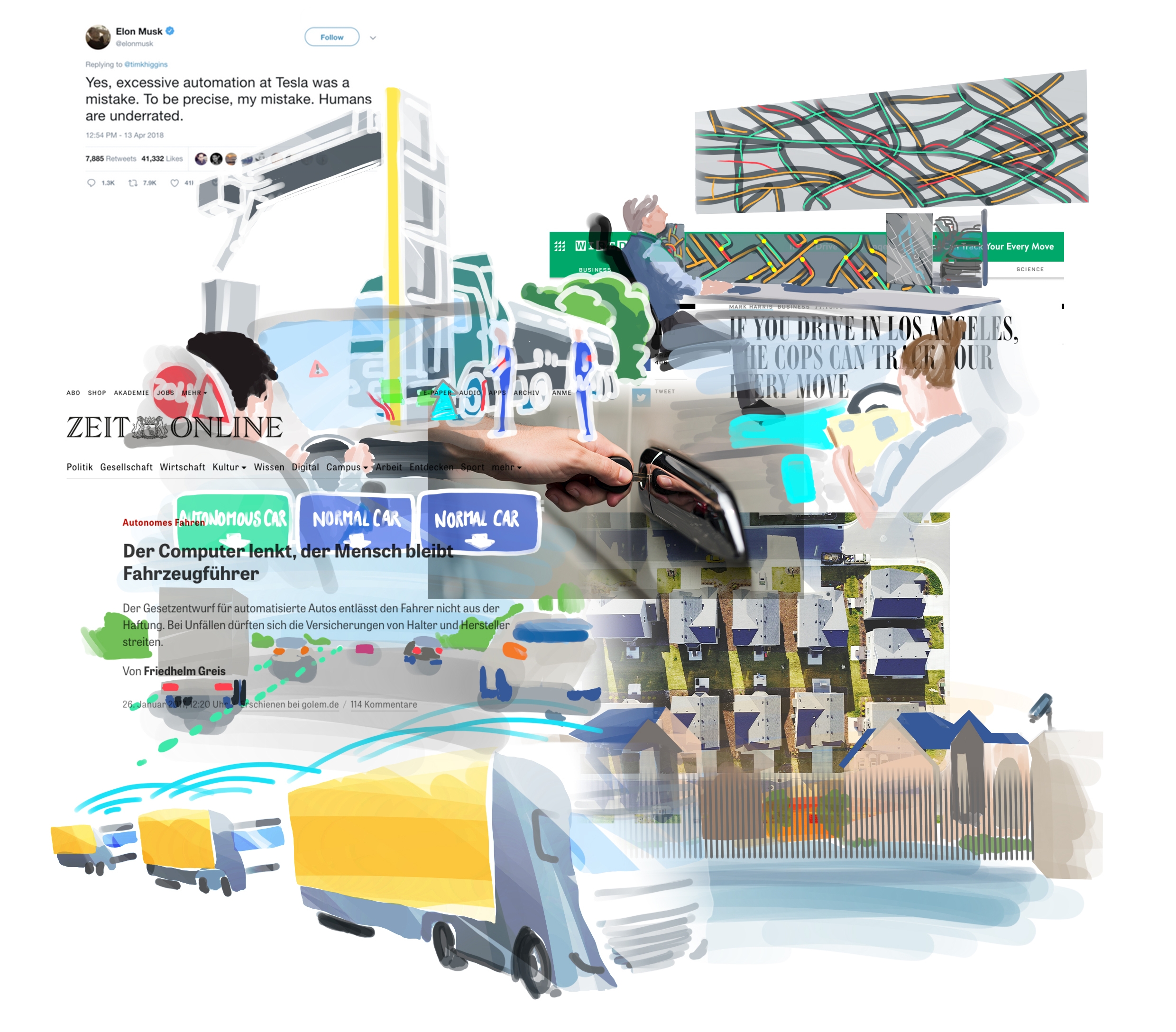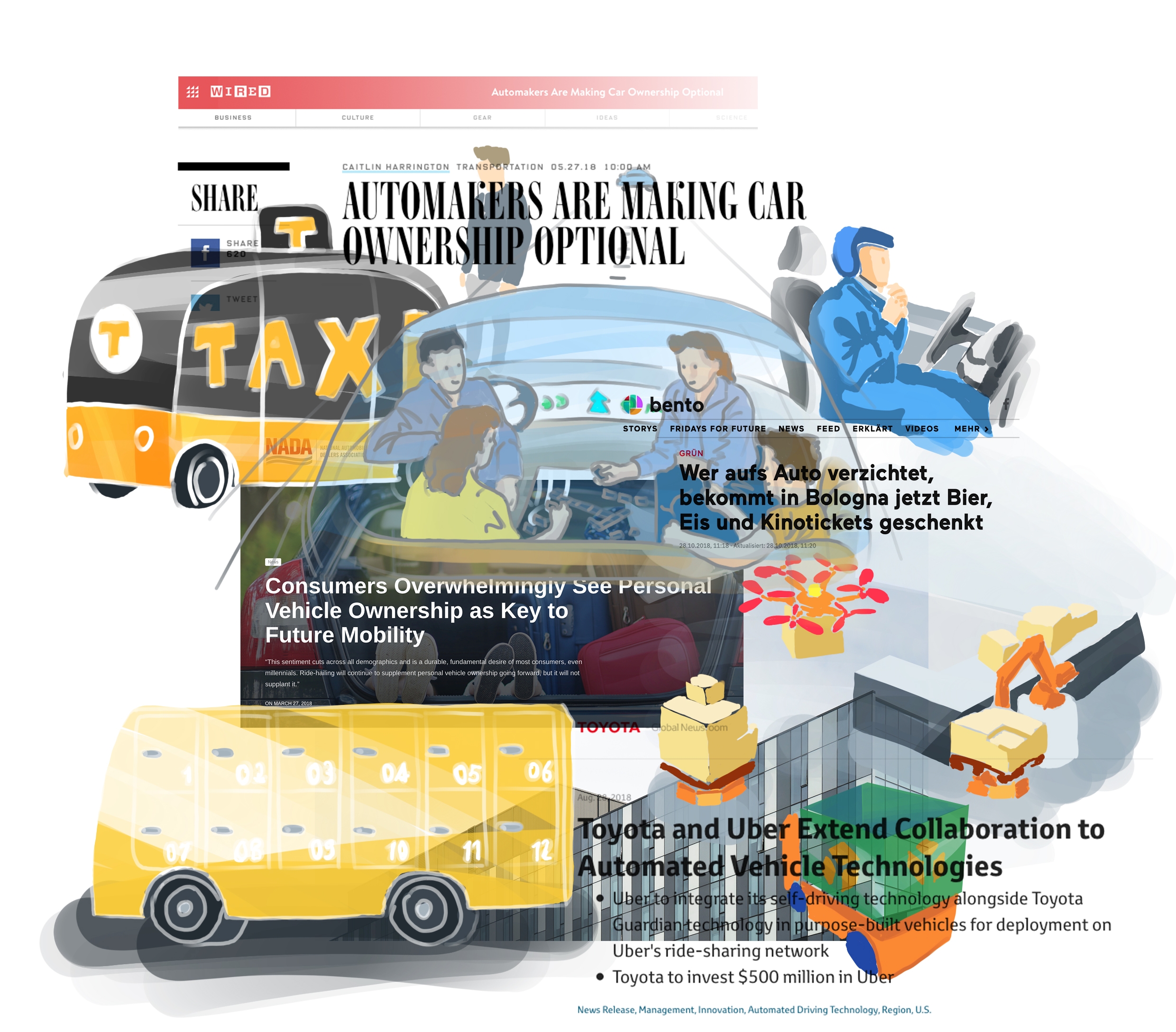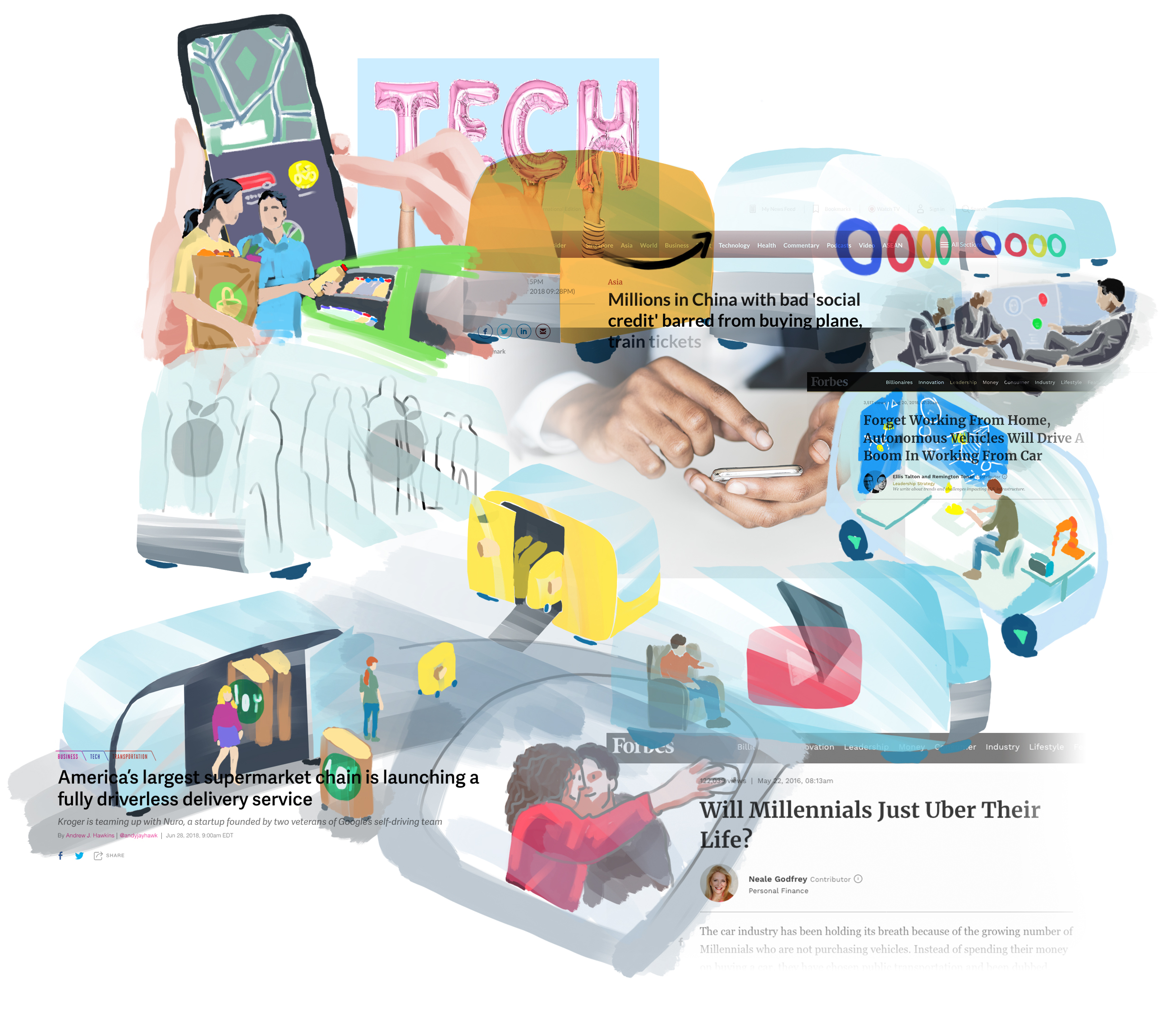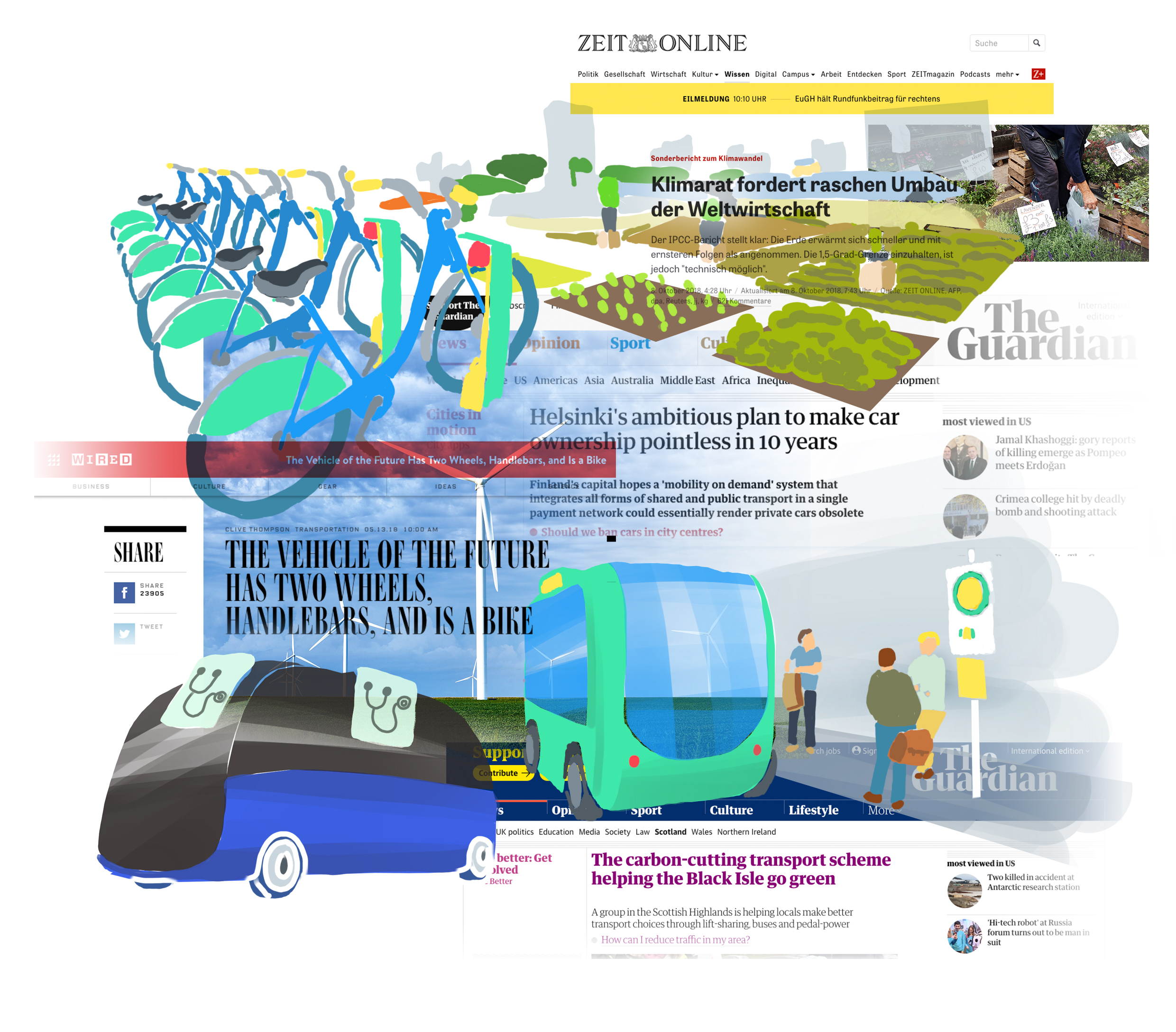What does our road traffic look like when automation becomes reality? How does a traffic policewoman work in a world where cars drive themselves? What does a driving instructor do when you no longer need a driver’s license?
How are traffic safety and mobility-related occupational groups and professions changing in the course of the increasing automation of mobility, digitalisation and sharing economy? And which new job profiles can emerge?
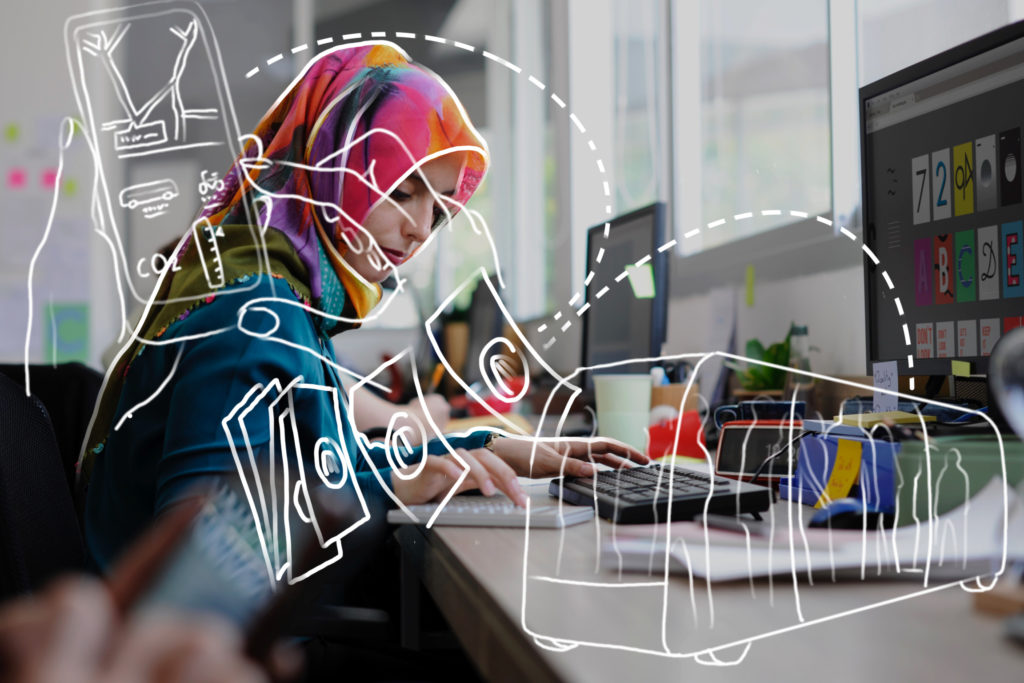
The Ars Electronica Futurelab researched these questions and more in an expert study for the Austrian Road Safety Board (Kuratorium für Verkehrssicherheit, KFV). The focus was on transport professions of the future, especially road transport in the areas of traffic safety, logistics and mobility.
Based on current technological developments in the transport sector, the Ars Electronica Futurelab developed four scenarios for the year 2050, in which more than 60 different job profiles are presented. The scenarios are based on two fundamental premises: firstly, Level 5 automation can be achieved without any problems by 2050, and secondly, CO2 emissions are controlled to an extent that still enables traffic on a larger scale.
Each of the four scenarios pushes one possible aspect of the future to an extreme: In “Humans in Control”, only certain parts of the road network are automated, people are technology-sceptic and cars are still an integral part of every household. In the “Private Autonomy” scenario, vehicles are automated on all routes, but each person still owns a private car. Traffic density is high. „On Demand City” also includes automated vehicles that can be called up at any time on request. Transport is possible directly from door to door, a private car is no longer necessary. The last scenario, “A Brave New Green”, is based on automated transport, an excellent network of public transport instead of private cars and individual mobility accounts. In this scenario, a person who uses their bike more than a car might be able to afford a long-distance trip at some point …
For each of these scenarios, detailed personas were developed that give an insight into their everyday work from a first-person perspective. From the accompanying driver in “Humans in Control” to the city farmer in “A Brave New Green”, people with diverse qualifications tell of their lives in the future. Some professions are particularly highlighted and show a very detailed picture of the possible new realities of life, complete with a customized CV, competence compass and activity log. Something that might surprise readers is that the job titles more often sound familiar than futuristic. The study shows that it is more likely individual activities, instead of entire professions, that change in the future.
Other trends that clearly emerge from the study are the increasing importance of basic digital knowledge and social skills. So-called hybrid skills will also become increasingly important – people who can combine knowledge from different fields will most likely have an advantage. Continuing education and never-ending learning are also high on the list of priorities for the future. This has consequences: Above all, the study shows that the future brings many challenges for the education sector, common corporate cultures and our handling of new technologies in society.
Read more in the Interview with Maria Pfeifer of Ars Electronica Futurelab.
The entire study for download is available here (in German only): https://www.kfv.at/mobilitaetsberufe-von-morgen/
This study was commissioned by the Austrian Road Safety Board (KFV)
Credits
Client: Kuratorium für Verkehrssicherheit (KFV), Dipl.-Ing. Philipp Blass, Mag.a Susanne Kaiser, Dipl.-Ing. Florian Schneider
Contractor: Ars Electronica Futurelab, Mag.a Maria Pfeifer, Dipl.-Ing. Christopher Lindinger, Nicolas Naveau, MAS

